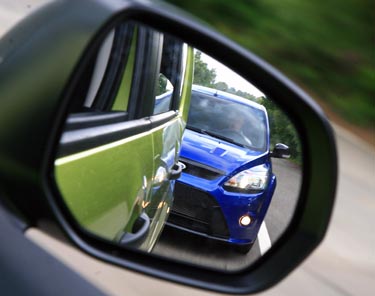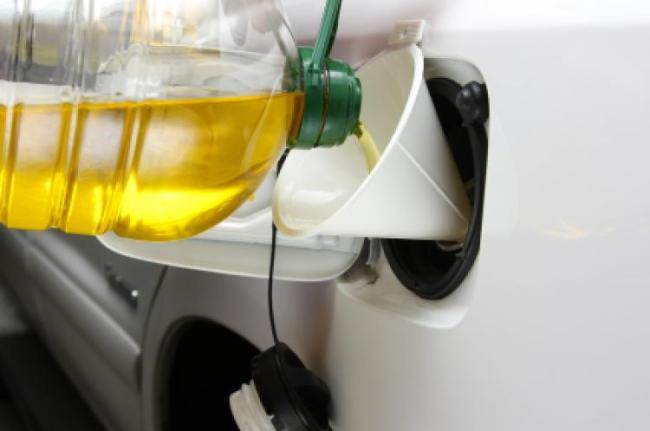Seasonal Travel Safety
With the start of hot weather season comes an increase in traffic, as good weather encourages more people to leave their homes and travel. No matter what puts you on the road this season, remember these simple tips to stay safe all season long:
- Slow Down – In addition to increases in traffic, summer means more road work. Always reduce speed in work zones and allow plenty of space between your vehicle and any workers.
- Plan your route – Driver indecision can be a major cause of traffic problems. Also, attempting to operate a GPS or read a map while driving can be extremely dangerous.
- Watch road conditions – Hot weather heat can change the way that your tires grip the roadway and affect braking. Be especially aware of fresh blacktop on hot days.
For more information on protecting your car this spring/summer and how it can affect your auto insurance, contact your agent.
Parent Teen Driving Agreement
Parent/Teen Driving Agreement
Provided by: Oakland Companies
I, ____________________________, will drive carefully and cautiously and will be courteous to other drivers, bicyclists, and pedestrians at all times.
I promise that I will obey all the rules of the road.
- Always wear a seat belt and make all my passengers buckle up
- Obey all traffic lights, stop signs, other street signs, and road markings
- Stay within the speed limit and drive safely
- Never use the car to race or to try to impress others
- Never give rides to hitchhikers
I promise that I will make sure I can stay focused on driving.
- Drive with both hands on the wheel
- Never eat, drink, or use a cell phone to talk or text while I drive
- Drive only when I am alert and in emotional control
- Call my parents for a ride home if I am impaired in any way that interferes with my ability to drive safely
- Never use headphones to listen to music on an mp3 player or other electronic device while I drive
I promise that I will respect laws about drugs and alcohol.
- Drive only when I am alcohol and drug free
- Never allow any alcohol or illegal drugs in the car
- Never accept a ride if the driver is not also alcohol and drug free
I promise that I will be a responsible driver.
- Drive only when I have permission to use the car and will not let anyone else drive the car unless I have permission
- Drive someone else’s car only if I have parental permission
- Pay for all traffic citations or parking tickets
- Complete my family responsibilities and maintain good grades at school as listed here: ____________________________________________________
- Contribute to the costs of gasoline, maintenance, and insurance as listed here: ____________________________________________________
Additional Promises:
________________________________________________________
________________________________________________________
I agree to the following restrictions, but understand that these restrictions will be modified by my parents as I get more driving experience and demonstrate that I am a responsible driver.
- For the next _____ months, I will not drive after ________ pm.
- For the next _____ months, I will not transport more than _______ teen passengers (unless I am supervised by a responsible adult).
- For the next _____ months, I won’t adjust the stereo, air conditioning/heater or any electronic devices while the car is moving.
- For the next _____ months, I will not drive in bad weather.
- I understand that I am not permitted to drive to off-limit locations or on roads and highways as listed here: ___________________________________________________
- Additional restrictions: __________________________________________
Penalties for contract violations:
|
No driving for ___ months. |
|
No driving for ___ months. |
|
No driving for ___ weeks/months |
|
No driving for ___ weeks/months |
|
No driving for ___ weeks/months |
|
No driving for ___ weeks/months |
I agree to follow all the rules and restrictions in this contract. I understand that my parents will impose penalties including removal of my driving privileges, if I violate the contract. I also understand that my parents will allow me greater driving privileges as I become more experienced and as I demonstrate that I am always a safe and responsible driver.
Signatures:
Driver: ______________________________________________
Date ________________
Parent promise: I also agree to drive safely and to be an excellent role model.
Parent (or guardian): ___________________________________
Date ________________
Parent (or guardian): ___________________________________
Date ________________
Managing Credit Card Debt
Your personal credit score is just as important as some of the other important numbers in your life…your blood pressure, your body mass index and your waist measurement. This number is based on personal credit management such as collection, length of credit history, types of credit cards used and applications for new credit. Financial institutions calculate your credit score, which determines what type of interest rate you will receive on a mortgage or credit card. Many other institutions are now using credit scores to calculate how high your health and auto insurance premiums will be as well.
Get Debt in Check!
Consumers who pay their balances on credit cards, pay mortgage payments on time and avoid late payments receive favorable credit ratings. This is important when considering how much you could pay in interest because you received a higher rate as a result of a low credit score.
Don’t despair. Even if your credit score is less than perfect, we’ve got some advice to get you back on track!
Tips for Those Who Want a Solid Credit Rating:
- Treat your credit cards like cash; deduct money from your checking account every time you make a purchase.
- Pay the entire balance of your credit card each month.
- Limit the usage of credits to two or three maximum and select cards with no annual fees, 25-day grace bill periods, rebate incentives or other incentives (airline miles, auto points, etc.) programs and single-cycle billing.
- Use your credit card with incentives for regular expenses such as groceries, utilities and gasoline.
- Conduct an assessment of your expenses quarterly and make adjustments to your spending if you are going over budget. Use a debit card only to curb spending.
Additional Tips for those who Need a Little Credit Boost:
- Enroll in a pre-paid credit card program in which you load money onto the credit card for purchases. Once you’ve reached your set limit, the card will not work.
- Establish a budget that includes a debt repayment plan monthly. As you pay off balances, call the creditor and ask them to close your account so that you are not tempted to use the card again.
Seek out financial assistance if you feel overwhelmed by debt. By reaching out to a financial advisor, you will be able to find specific ways in which you can minimize your debt and improve your personal financial situation. For more information on how this does affect your insurance, contact your agent.
Going Green When You Drive
Climbing gas prices and an increased focus on the effect fossil fuels have on the environment have drivers looking for ways to not only to keep costs down but also to protect the planet.
Drive Green
Vehicles that run on gasoline release greenhouse gases into the atmosphere. These gases contribute to climate change, air pollution and disease. To get better gas mileage and release cleaner emissions, drive a hybrid vehicle – these cars run on electricity, not just gas. Whether you get a hybrid or not, select a car that gets the best miles per gallon (MPG).
- Use vegetable-based biodiesel fuel in diesel cars and trucks.
- Use ethanol gas if your vehicle can use it.
- Buy an electric car or plug-in hybrid vehicle.
Change Your Driving Habits
The way you drive can affect your fuel economy.
- Avoid sudden starts and stops and drive the speed limit.
- Keep your engine speeds between 1,200 to 3,000 RPMs and up-shift between 2,000 to 2,500 RPMs.
- Do errands in one trip.
- Get directions to avoid getting lost.
- Turn off your car if you will be idling for more than a minute.
Keep Up On Maintenance
Make sure you get regular tune-ups on your vehicle, including oil changes and cleaning your air filter. Don’t forget these other maintenance suggestions:
- Check your tire pressure. Underinflated tires means the engine has to work harder, resulting in burning more fuel.
- Remove excess items in your vehicle – extra weight can have an effect on your fuel economy.
- Avoid using the air conditioner. Instead, open your windows, use an electric or solar fan, park in the shade or use a reflective windshield shade to keep your car cool.
Find Alternatives to Driving
- Carpool with coworkers and friends.
- Try a car-sharing program, such as FlexCar or ZipCar.
- Use public transportation, walk, rollerblade or bike to places you need to be.
- If possible, try altering your commute. Avoiding peak traffic times
can mean less gas is spent in stop and start traffic.
Did You Know?
Vehicles that get better gas mileage can save you hundreds of dollars every year. To find out how efficient your vehicle is compared to others, check out www.fueleconomy.gov.
For more information on going green when you drive, contact your auto insurance agent.
Don’t Get Distracted Behind the Wheel
It is widely accepted that driving under the influence of alcohol poses a serious danger to the impaired driver and other motorists on the road. However, a recent study from the University of Minnesota found that talking on a cell phone while driving impairs one’s ability even more than driving while intoxicated. Talking on a cell phone and other driver distractions pose a major hazard to everyone on the road!
Decreasing Distractions
While there is little that you can do to control other people’s driving, there is plenty that you can do to reduce the distractions in your own vehicle. To minimize risks while driving:
- Do not talk on your cell phone or use the text messaging feature. If you absolutely must conduct a conversation, do so using a hands-free device and speed dial.
- Never touch up your makeup or hair in the rearview mirror. You’ll look the same once you get to your destination as you do while your foot is on the gas.
- Limit your conversations with passengers and ask them to keep their voices down so you can concentrate.
- Do not smoke while you are driving, as you will probably pay more attention to not burning yourself, putting out the cigarette or inhaling than driving safely.
- Only adjust the radio or CD player when you are completely stopped.
- Never allow animals to sit on your lap while driving.
- Do not eat or drink while driving.
- Avoid reading maps or directions. Instead, pull into a parking lot to get your bearings and determine where you need to go next to reach your final destination.
- Do not take notes or search for phone numbers.
- Never use a cell phone (even with a hands-free device) in bad weather, work zones or heavy traffic.
Avoiding claims and accidents are the two things that you should always be concentrated on when operating a vehicle. For more information on auto insurance, contact your agent.
Roadway Safety Driving Tips
You share the road with cars, buses, motorcycles and pedestrians every day on the job. Therefore, safety for yourself and other individuals on the road is in your hands. It is necessary that you comply with speeding laws, following cautions and passing procedures to ensure that you and those around you are safe.
Driving
- Always follow the posted legal speed limit.
- Be especially mindful of your speed when passing a school where children are present, when going through an intersection marked “school crossing” or when passing a safety zone occupied by pedestrians.
- In addition to obeying the posted speed limit, also obey the “reasonable and prudent” speed limit.
– This means that you should not drive faster than the conditions allow.
– In rain, fog, ice, snow and heavy traffic, you should reduce your speed to avoid an accident.
– Slow also when crossing an intersection or railway crossing, going around a curve or passing through construction zones.
Following
- Maintain at least a four-second following distance behind other vehicles.
- Allow more space and time depending on weather conditions and traffic congestion.
- Never follow too closely. It takes 400 feet for a large truck to come to a complete stop.
Passing
- When attempting to pass another vehicle, signal ahead of time to alert your intentions.
- Ensure that you can see the vehicle’s headlights in your mirrors before pulling back in front of it.
Be cautious while passing during rough weather conditions. For more ways to drive safe this winter season, contact your auto insurance agent.
Maintain Your Distance – Don’t Tailgate
Picture this: You are driving to an important appointment, or work, and get stuck behind a driver going a few miles per hour under the speed limit. What do you do?
Many drivers, some who are feeling impatient and others who do not realize they are doing it, follow the vehicle in front of them too closely. While this situation may be commonplace, it puts both you and the drivers in front of you in danger.
Understanding the Danger
Tailgating is an extremely dangerous practice. If there is a collision ahead, if the road is slick, or if traffic becomes heavy, everyone on the road should be  prepared to stop. However, if you do not leave sufficient space, even if you are paying close attention, you will not have enough room to.
prepared to stop. However, if you do not leave sufficient space, even if you are paying close attention, you will not have enough room to.
Two-Second Rule
Almost 10 percent of all accidents are caused by tailgating. To avoid joining those ranks, always follow the two-second rule.
If you are driving on a normal road in good weather conditions, there should be at least a two-second buffer between your vehicle and the one in front of you.
Here is how to calculate your distance:
- Pay attention to the vehicle in front of you as the driver passes a fixed point such as a mile marker or a sign post.
- Once the vehicle passes that point, count until you pass that same point (“one thousand and one, one thousand and two…”). Should you reach that point before counting to two seconds, then you know you are following too closely. Slow down and try the test again with a new fixed point.
Inclement Weather
If road conditions are not good or if you are driving in bad weather, you should increase your distance even further. Conditions like rain, ice and snow not only make roads slippery, they also greatly reduce visibility, so you may not see a hazard farther in front of you to react in time.
Gas Mileage
A common misconception is that tailgating can increase the gas mileage of a vehicle, similar to when racecars “draft”; however, this is not the case. Racecars drive at speeds of 200 mph and must use a lot of energy to cut through the air. When racers ride close to the vehicle in front of them, they use less energy due to their speed. However, driving at speeds of 60 mph does not require nearly the energy to maintain the speed, and therefore, tailgating is not beneficial.
Speak Up
If you have any doubts about safety on the road or any other safety issue, contact your supervisor. Your safety is first priority.
Almost 10 percent of all accidents are caused by tailgating, even in Michigan. To avoid joining those ranks, always follow the two-second rule.
For more information on how this affects your auto insurance, contact your agent.
Get Plenty of Rest Before You Drive
It is incredibly dangerous to drive any vehicle, especially a large truck, without adequate rest and nutrition. To keep yourself and those around you on the road safe:
¨ Try to get at least seven hours of sleep before your shift.
¨ Eat healthy foods, and incorporate exercise into your routine to give your body the energy it needs.
¨ If you feel as though you may fall asleep while driving, pull over and get some rest.
Don’t get unnecessary service violations for being too tired – be smart and treat your body with respect and care! For more information on how this affects your auto insurance, contact your agent.
Divorce and Your Insurance
While going through a divorce, you need to reassess your finances. To start, you should:
- Review all insurance policies in place during the marriage
- Decide which policies you still need
- Decide how health insurance for all family members will be provided for
- Decide what additional coverage is needed
The Basics
Health Insurance – Health Insurance coverage should be covered in the final divorce decree. Who pays for what should be clearly stated so that there is no confusion. If you have children, it is imperative that an agreement is reached as to who will provide coverage. Usually whoever had the coverage for the children prior to the divorce will continue that coverage. Who is responsible for unreimbursed medical expenses should also be addressed.
If you had medical coverage through your spouse’s employer-sponsored health plan, you may be allowed to continue that coverage for up to 36 months under COBRA. If you do qualify, coverage is not automatic. You must contact the employer within 60 days of the divorce and complete the necessary  paperwork. If you do not qualify, you should consider a standard health insurance policy or, at a minimum, a policy that would protect you in the event of a major medical emergency.
paperwork. If you do not qualify, you should consider a standard health insurance policy or, at a minimum, a policy that would protect you in the event of a major medical emergency.
Life Insurance – You should review your Life Insurance policies and make sure that they still meet your needs. You may also want to change beneficiaries at this time. Make sure that your ex-spouse carries coverage and that you are named as a beneficiary if you depend on their income for support. Check with your attorney before making any beneficiary changes. Now might also be a good time to increase your policy. Who carries Life Insurance, the amounts of the insurance, named beneficiaries, and accrued cash values should all be provided for in your divorce decree.
Disability Insurance – This pays a monthly benefit in the event that you become disabled and are unable to work. If alimony or child support is ordered, it’s especially important if the payer has no other sources of income to continue to make those payments. Consider what your needs would be in the event that you became disabled. We can help you determine specifically what type of insurance and the amounts you need to best protect your interests.
Homeowners and Renters Insurance – These policies protect your residence and the contents from damage or theft. If one spouse remains in the residence, they will want to make sure that they change the Homeowners Insurance policy to their name only and review their coverage. As a single parent, we recommend Replacement Cost coverage, which will reimburse you for what it would cost to replace an item. Also, opting for a higher deductible will help you save money on your premium.
Automobile Insurance – Automobile Insurance covers damage to your vehicle and damage that you may cause with your vehicle. Inform your insurance agent if you are separating or divorcing. Separate policies may be required if you and spouse are not living under the same roof. When you divorce, you will need to remove your spouse from your insurance policy. As a single person, you may now find options like towing, rental reimbursement, and roadside assistance beneficial.
Umbrella Insurance and Long-Term Care Insurance are additional coverages you may want to consider.
Helpful Tip – Avoid post-divorce credit problems by closing all joint accounts.
Don’t make the mistake of overlooking your insurance needs when going through a divorce. The lack of adequate insurance for yourself, your children, and even your spouse can lead to financial ruin.
Contact your insurance agent to discuss some important things to consider when going through this stressful time.
Filing an Insurance Claim? Watch What You Say!
Filing Claims 101: All You Need to Know!
Many people are flustered when they file an insurance claim given that claims typically follow devastating events like car accidents, illnesses or home fires.
To help you file a claim in Michigan with ease, below is some useful information you need to make the best of this trying experience.
Navigating an insurance claim can be quite tricky if you are unsure how to approach it. Consider the following recommendations to increase the chance that your claims will be processed successfully. Better yet, put these tips in your wallet or post them on your fridge.
When you are involved in an automobile accident
- Do not apologize to other drivers involved or admit fault under any circumstances.
- Describe what occurred to law enforcement and to your insurance company. If you are unsure, leave it to the authorities.
- Always contact your insurance company immediately after an auto accident.
- Do not talk to the other driver’s insurance company; let your company represent you throughout the ordeal.
When your home is flooded
- The term flood in the insurance world refers to water damage resulting from an overflow of a nearby stream or river. Even if your sump pump did not work and you have 6 inches of water in your basement, you are not dealing with a flood.
- Making references to the wrong terms can cause claims to be denied or elongate the process.
- Review your Homeowners Insurance policy to determine what it covers with regard to water damage.
- Do not guess how accidents occurred. An insurance investigator will determine the exact cause of the claim in question.
When you have a health care claim:
- Avoid calling procedures experimental, investigational or a clinical trial. The claim may be denied if the treatment is seen as unnecessary.
- Do not sign any medical record releases. It is illegal for an insurance company to access your records without your consent, and they should not need them to process the claim.
The most important thing to remember when filing a claim is that the less you say the better. Do not speculate and do not judge; simply give the facts and the insurance company will take care of the rest.
Feel free to contact your agent for assistance throughout the claims process.









